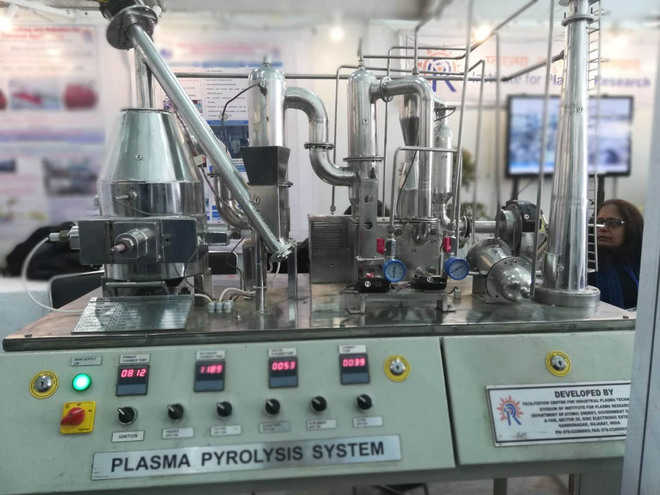Gujarat institute comes up with plasma pyrolysis
Deepkamal Kaur
Tribune News Service
Phagwara, January 3
While the Local Bodies Department is yet to get a proper mechanism for waste management, officials need to study the plasma pyrolysis technology currently being disseminated at the Indian Science Congress here.
The Institute for Plasma Research, Gujarat, a research institute of the Department of Atomic Energy, has come up with models based on the technology at the five-day exhibition. Unlike the incinerators already rejected by civic bodies in the state, it produces no harmful end products — no methane and no dioxins, and hence, much less taxing on the environment.
The outreach team of the institute said, “Nothing comes out of our chimney, other than pure nitrogen or hydrogen as everything gets broken down at 10,000 Celsius temperature inside the plasma pyrolysis machine. Metals can come out in trays and can be recycled. Pure carbon is collected in scrubber and can be used for kajal or as absorbent in the industry.”
Officials of the institute said the pyrolysis machine was already installed at about 15 locations in India, most of them are hospitals.
“Medical waste disposal is a big problem for the country because there are chances dangerous pathogens can spread. We have also experimented it with municipal waste and chemical waste in Gujarat. Slurry of chemical waste can be made and fed into the machine. The pyrolysis machine has a capacity to dispose of 10 kg of waste per hour and it costs about Rs 60 lakh, in addition to Rs 20 per kg running cost,” they added.
Revival of angora wool industry
As another technological use of plasma, the institute has started reviving the angora wool industry in Kulu.
“The fibres of the extremely warm angora wool that was being used earlier to loosen out and hence its use had reduced. Now, we have set up a plasma plant at the Kulu Weavers and Development Corporation where the fibres are treated with plasma. The surface becomes rougher to weave it into thread. The fibres are passed between two plates of plasma. It costs the weavers Rs 20 per kg and takes about an hour for treatment,” officials added.









